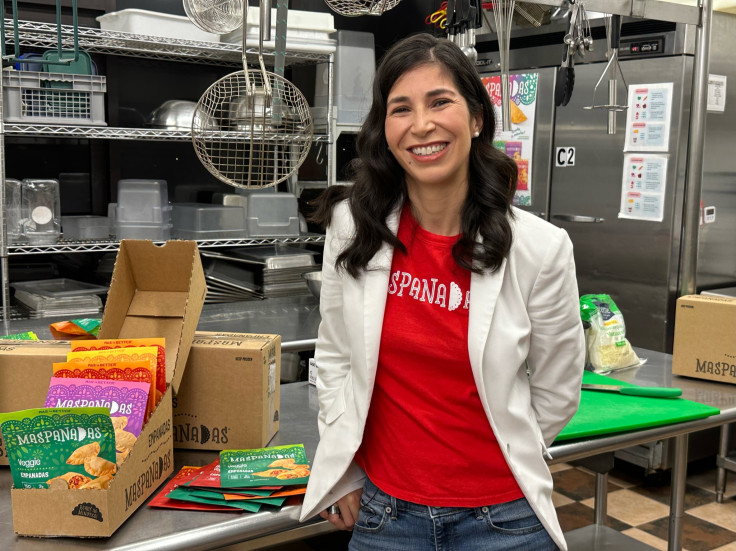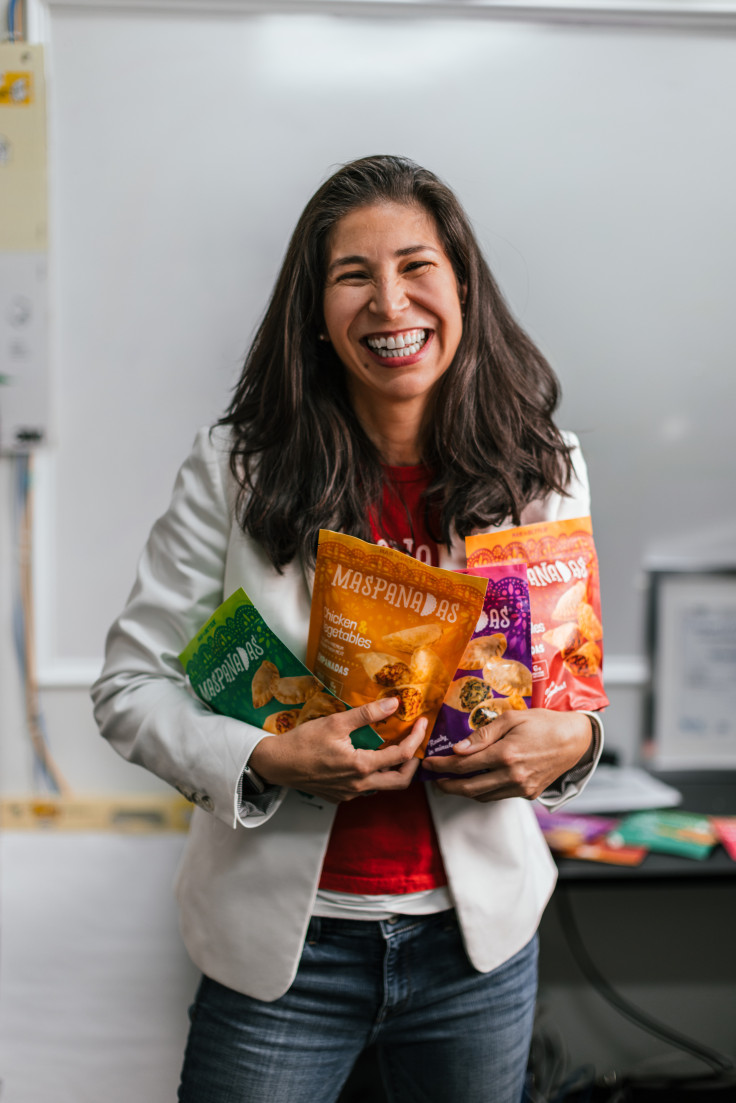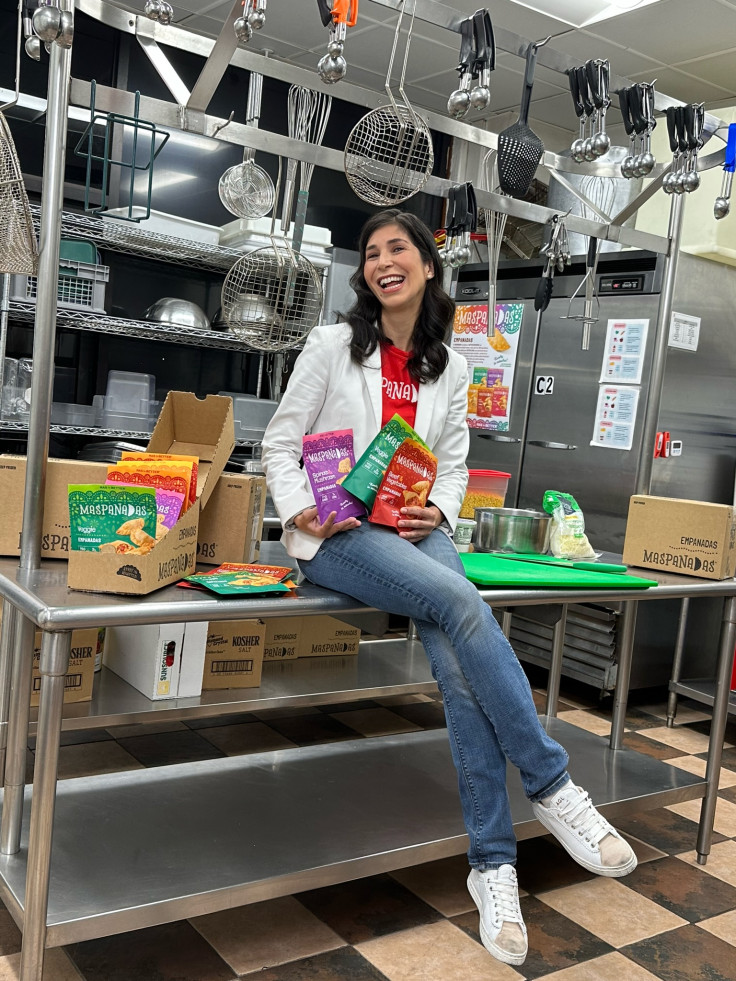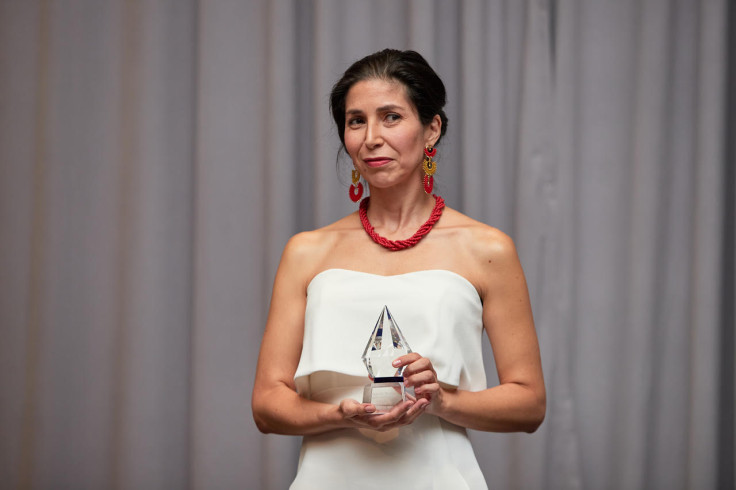
Food has always played a central role in Colombian biologist Margarita Womack's life, though she never thought it would become her profession or that it would turn her into a celebrated CEO in the U.S., leading a unique and thriving company that specializes in 'empanadas,' one of the most popular culinary traditions in Latin America
The 43-year-old entrepreneur founded MasPanadas seven years ago. It started as a small catering business for Latin American food out of her home kitchen, its initial goal being an alternative source of income. It also aimed to serve as a means to apply for a VISA for a Colombian friend who was assisting her with her newborn and two more children.
However, the idea soon turned into a profitable business venture, and in 2020 Margarita opened her first factory in Rockville, Maryland, with financing from Angeles Investors and Union Kitchen Ventures.
MasPanadas is now distributed across the U.S. and will soon open a second production plant. Womack has been recognized as "Entrepreneur of the Year" by Ernst and Young, and "Top CEO of the Year," in the small business category, by the Washington Business Journal (both in 2022).
From Restaurants in Bogotá to a Ph.D. in New Orleans to CEO of a Food Company in the U.S.

Margarita grew up in Bogotá, playing in the kitchen of her father's restaurant, 'El Hueso Perdido,' but she never saw that world becoming hers. "There's always been someone else that does the cooking in my life, and I really much enjoyed the eating" she explains to The Latin Times in an interview -today, Andy, her husband, is the foodie in her household.
"I was all about science," Margarita explains. In 2000, she was still in college studying Biology, when her family escaped from Colombia and migrated to the U.S.: "My family was subjected to extorsion by a 'guerrilla' group called FARC. They were asking my mother for money and other kinds of resources, and she did not want to play the game, so the threats started escalating. When we considered we were in serious danger we had to leave."
She faced a language barrier when arriving in the U.S., but quickly learned to speak English to finish her studies in Tulane University, in Louisiana, and then managed to get a PhD at Princeton University in Ecology and Evolutionary Biology -that means she can speak for hours about sexual selection in spiders or the genetic basis of morphological differences between closely related species, two of her research topics.
"I thought that would be my life, that from there I would go on to do a post-doctoral degree and then get a job at a university, do a little bit of teaching, but mostly lots of research, maybe even win the Nobel Prize. Who knows? But, plans changed, and so as I got further and further into my career as a scientist, I realized that many professors were mostly on their desks and not really doing that much of the research. So I lost a little bit of the enchantment of academia", she remembers.
The entrepreneur started teaching science in middle school, where she could still share her love for the subject without academic pressures. "When you're in the science field it's 'publish or perish' and you're just 24 hours a day thinking about your research and working. But when I finished my postdoc, and had children, it was also much harder to find balance in academic life," she added.

-Do you believe that creating MasPanadas involves leveraging your expertise as a biologist?
-Absolutely. With a PhD you go so deep in a tiny, tiny, tiny sliver of knowledge, right. So I could tell you absolutely everything about the genetic basis of the difference in the belly color of two Drosophila flies. Super fascinating, but incredibly complex. But, what really science does for you is train you to think. So it shows you how to post a question, how do you frame it in a way that can be resolved and how do you gather information to be able to answer it. And that's what business is in the end, right? You have iterations of a product or service. You're trying to understand your market, and you go from there to really solve a problem. And science structures your thinking to be able to do so in an effective, efficient, and realistic way.
-When you started with catering, you were drawing from your family's traditions in gastronomy and Colombian culinary practices. However, you later specialized in empanadas. Why?
-There was a real business opportunity in frozen foods, and it was the very beginning of the era of the empanada, burritos, and taquitos. The growing influence of Hispanic culture across the US is particularly prominent in food. Maspanadas is a modern, elevated version of the typical empanada. 'Más' in Spanish means more, and we're so much more than an empanada. We are an empowering bucket of goodness. MasPanadas kept the portability, the fun, the taste of empanadas, but elevated it for nutrition. Everything that comes into our plant is raw, natural, all the ingredients you would find in your own kitchen, that then we turn into a little handheld pie where the filling is the core. The dough is just a thin envelope to keep it all together. Is something you can enjoy as an appetizer with friends, as an afternoon snack with kids, or also as the center of a meal.
-How does it feel to bring a piece of Colombian gastronomic tradition to the United States?
-It makes me proud to be a Colombian, to be honest. And it's the chance to highlight an aspect about me, my culture, my background. Colombia has had such a bad reputation and I'm being able to show something that's unique about it. And even beyond, because 'empanadas' are something so diverse across Central and South America, with so many different variations. That's a bit like for the US at barbecue, right? There's the Texas version and there's the Tennessee version, South Carolina version. We are not making Colombian empanadas yet. It's something we hope to do, but the current products are more neutral.

-Have you ever felt being a Latina posted you more challenges to thrive in the U.S.?
-As a business owner, often people struggle with the fact that I'm the boss. And, I do have a man as my right hand. And he actually will be very dismissive of people that come to talk to us, and they talk only to him. I understand it. You're judging from patterns of what you think countered before and in general, Latinos, especially women, we're not the professors at high caliber universities, the business owners or the homeowners of new fancy neighborhoods. I live in a nice neighborhood outside Washington, DC, and the other day, a Hispanic worker knocked on the door, and he look at me and saw that I'm obviously Hispanic and my children who look more like my husband, very light skinned, blue eyes, blond. Who am I? She has to be the maid or the nanny, but never the homeowner.
-The origins of MasPanadas goes back to your attempt to collaborate with a migrant friend. How is the company still connected to collaborating with the Latino community?
-The business continues to have that same spirit, supporting immigrants, but in a very different way. Out of our 98 employees, about 80 are women, and 96 are Hispanic, eleven different countries represented. The majority of our employees are in the manufacturing floor. It's a job that anyone can do, and we train them so they have career options in manufacturing. And then we're doing pilots for ESL -English as a second or foreign language- lessons and expect to eventually offer child care, because our central mission is to support immigrant women, immigrant Hispanic women, their families and their communities, empower them. I started a foundation this December to support our employees and eventually go beyond the walls of MasPanadas. So we look to provide the tools and network skills that are needed to transition to successful life in the U.S.
-Reflecting on your experience, what advice would you give to aspiring entrepreneurs from the Latino community looking to establish themselves in the U.S.?
-Take advantage of who you are and what you bring. Be proud of it. There's so much we can contribute to the U.S. with who we are. I also know that the road ahead is tough. Be prepared to know that you're going to have to make big sacrifices, but believe the dream and keep on fighting. Even though statistically there's all these aspects about how much harder it is when you're a Latina entrepreneur, there's so many opportunities. And I think Latinos, we tend to have more grit and we are the group that start the most companies across the US. So just keep on going.
© 2025 Latin Times. All rights reserved. Do not reproduce without permission.





